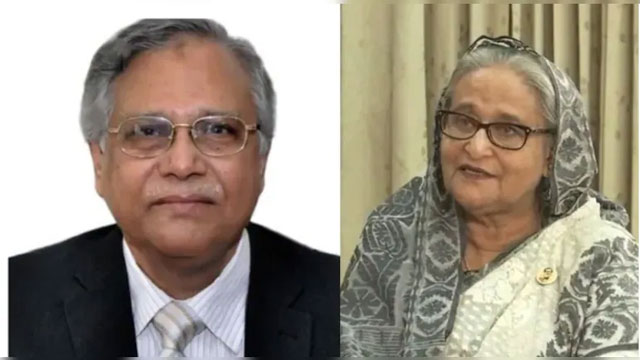Daijiworld Media Network – Dhaka
Dhaka, Jul 24: In a dramatic turn of events, Bangladesh's former Chief Justice ABM Khairul Haque was arrested on Thursday morning by the Detective Branch (DB) of police from his residence in Dhanmondi, Dhaka, intensifying the ongoing crackdown on top functionaries of the previous Sheikh Hasina-led regime.
Confirming the arrest, DB Joint Commissioner Nasirul Islam told ANI, “Yes, we have arrested him. There are three cases against him,” without divulging further details.

Khairul Haque, who served as the 19th Chief Justice of Bangladesh between October 2010 and May 2011, is at the centre of a growing legal storm, facing multiple charges, including corruption and judicial forgery.
A complaint was filed against him on August 18 last year by Supreme Court lawyer Mujahidul Islam Shaheen at Shahbagh Police Station, accusing the former top judge of manipulating judicial verdicts and engaging in corrupt practices. Another case was registered on August 15 at Fatulla Police Station in Narayanganj by Abdul Bari Bhuiyan, a senior BNP leader and former Narayanganj District Bar Association president.
Bhuiyan’s case centres around the controversial 2011 verdict delivered by a bench headed by Khairul Haque, which scrapped the 13th Amendment of the Constitution and abolished the caretaker government system that had previously overseen national elections. He alleged that Justice Khairul altered the original verdict and committed forgery, triggering a constitutional and political upheaval.
The arrest of Khairul Haque is part of a wider crackdown by the interim government led by Nobel Laureate Muhammad Yunus, formed after Sheikh Hasina's ousting in a student-led uprising in August 2024. Since taking over, the interim administration has been arresting a wide spectrum of former regime officials — including politicians, bureaucrats, economists, top election officers, and now, a former Chief Justice.
The arrest has sent ripples through the country’s legal and political circles, with many watching closely to see how far the interim regime is willing to go in its promised bid to "cleanse the system" of past irregularities.